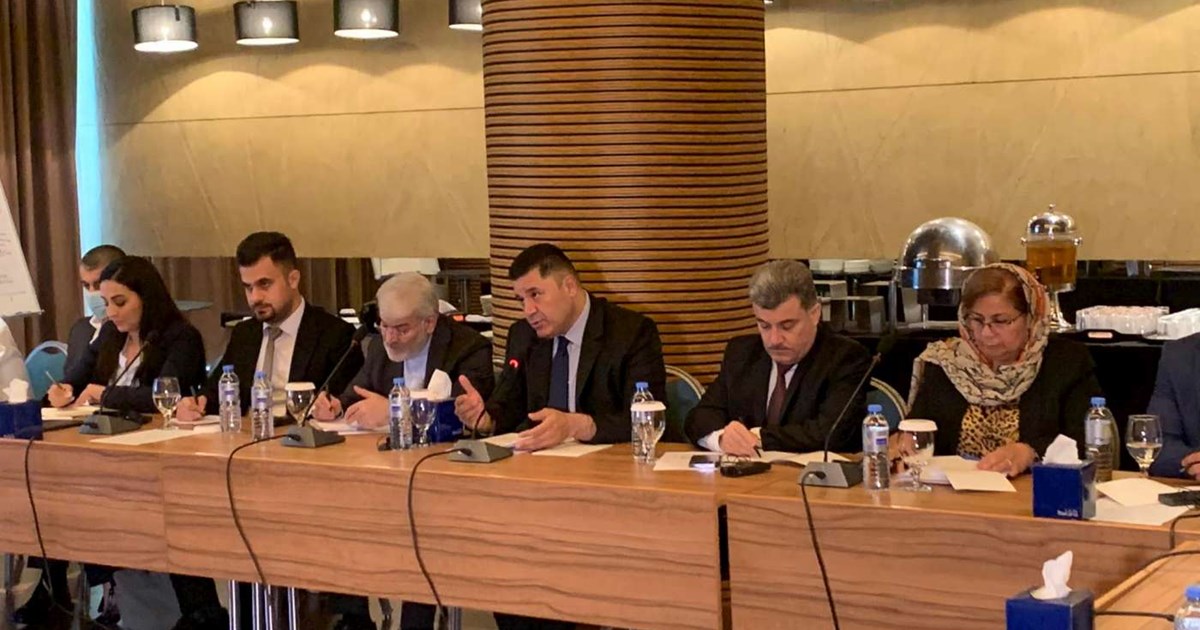OCIA-ICRC joint workshop on ill-treatment and Enforced Disappearance

Erbil, Kurdistan Region, Iraq (GOV.KRD) - The Office of the KRG Coordinator for International Advocacy (OCIA) in cooperation with the International Committee of the Red Cross (ICRC) on Monday conducted a workshop entitled "ill-Treatment and the Missing: Dissemination to key stakeholders for the implementation of the Kurdistan Region’s Human Rights plan". The workshop was the first of a series of workshops that was attended by the representatives from various governmental institutions and several diplomatic offices.
The workshop kicked-off with the Head of the Office of KRG Coordinator for the International Advocacy, Dr. Dindar Zebari's remarks. He stressed the importance of the Regional Human Rights plan, acknowledged the contributive role of ICRC, and reiterated the commitment of KRG to upholding standardized calibers of human rights institutionally.
His remarks were followed by Anna Halford, Head of ICRC's Sub-delegation in Erbil. She presented snapshots of ICRC's activities and mandate internationally and domestically. She explained that ICRC operates in accordance with the four Geneva conventions and the three additional protocols, and along the articles of the International Humanitarian Law (IHL) and the International Human Rights Law (IHRL).
The advisors commenced the workshop with illustrating the distinctions between torture and ill-treatment. While the former entails the intentional infliction of pain and suffering to obtain confession, the latter encompasses any corporal and/or psychological treatment that results in fear, anguish or humiliation - including extensive detentions and solitary confinement.
To combat torture, the Kurdistan Regional Government (KRG) takes effective judicial and administrative measures, where the Public Prosecutor Office is tasked with investigating all forms of torture in detention and correctional facilities to ensure that detainees and those convicted are not subjected to ill-treatment.
Legal measures are taken against the security personnel who are involved in perpetrating torture or facilitating its occurrence. In this respect, cases that allegedly involve torture have been tackled and the legal proceedings have already taken course. The legal proceedings include the approval of an equitable compensation for persons who remained in pre-trial detention for a longer-than-usual period. Furthermore, legal measures were taken against number of law enforcement officers for employing violence in dealing with inmates; the measures ranged from warnings, deprivation of allowances for consecutive months, and translocation of their duties to other administrative units.
Procedures have been streamlined and the strict security arrangements have been eased in the reformatory facilities for observers from international and local organizations, the Independent Commission for Human Rights, and the specialized committees in the Parliament of the Kurdistan Region to visit correctional facilities and detention centers to preserve the rights of the inmates and investigate allegations of torture. Between January and May 2021, the United Nations Assistance Mission for Iraq (UNAMI) conducted more than 14 visits, during which they met with 60 detainees.


